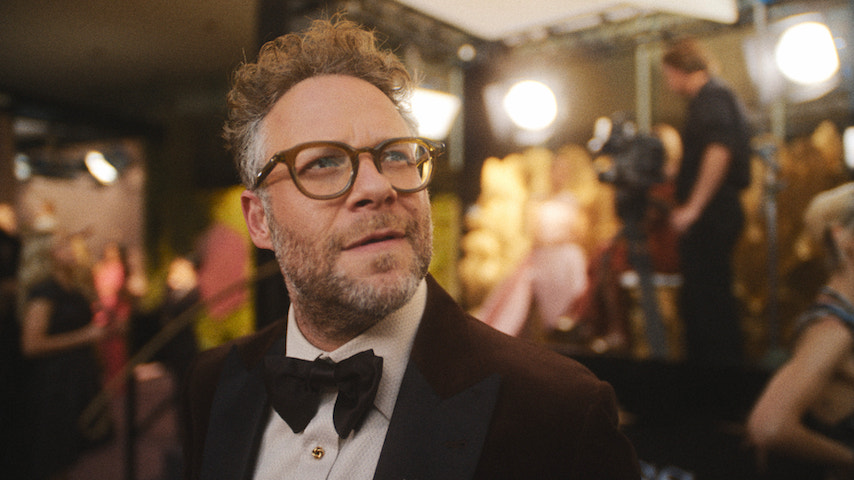The Studio is as much about the art of falling as that of filmmaking
Slapstick acts as the Hollywood satire's great equalizer.
Photo: Apple TV+
In the first few minutes of The Studio‘s premiere, Matt Remick (Seth Rogen) has achieved his longtime dream of becoming the head of Continental Studios. And for the rest of the season, he and his colleagues spend a lot of time on the ground. Which brings up a common thread for Matt: In episode two, he destroys Sarah Polley’s oner by walking into a beverage cart and face-planting; the following week, he falls backwards over a snack cart as Ron Howard calls him a “lame-ass idiot”; and he tumbles down a hill with Olivia Wilde in the next installment’s Chinatown riff—just before right-hand man Sal Sapperstein (Ike Barinholtz) is hit by a car trying to rescue a missing film reel. Being a studio head, it seems, means physically sparring with your directors and ending up with not just a bruised ego but a bruised body.
But this is more than mere slapstick: This type of comedy is The Studio‘s great equalizer and an antidote to some of the series’ incredibly inside-baseball plots and in-joke cameos. Not everyone will know who Ted Sarandos or Matt Belloni is. But anybody can see the humor in a golf cart ramming spectacularly into a Revolutionary War-era set after someone is hit by a stray burrito, a main plotline in The Studio‘s fifth episode. Sight gags like a pratfall or a car crash feel spontaneous and lend the series a cartoonish, screwball-comedy sensibility. Other recent comedies taking aim at the entertainment industry—The Other Two, Hacks—are notable for their wordplay and wit. The Studio often opts for the more gut-level laugh.
 Keep scrolling for more great stories.
Keep scrolling for more great stories.
